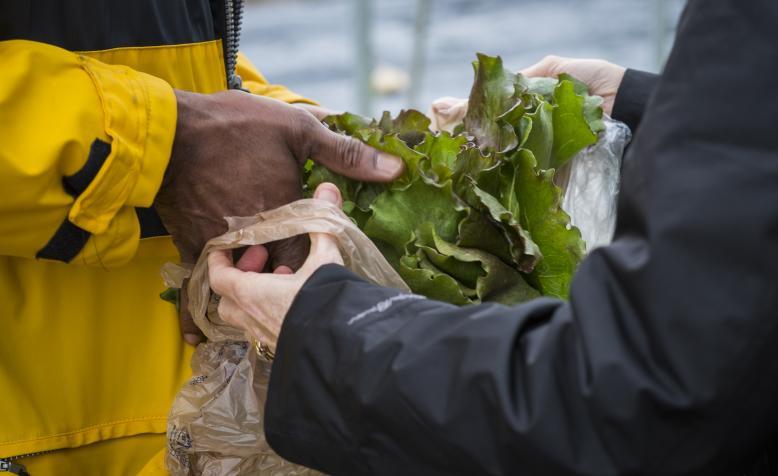Single-use plastic ban to go into effect Jan. 1 with transitional help from Athens Rethink Plastics
Athens Rethink Plastics has been actively working to change the way people in the community treat the environment, but also, themselves. The group was created by a group of individuals concerned about the impacts of plastic consumption and production and its impact on the environment and people’s health. Now, they are influencing Athens city policy.
On May 1, 2023, Athens City Council voted to reduce the use of single-use plastic bags in the city. Originally, the ordinance was set to go into effect Aug. 1, but was moved to Jan. 1 to give local businesses more time to adjust to the change.
Introduced by Athens City Council’s Alan Swank, 4th Ward Representative, Athens Rethink Plastics advocated and helped gather support to pass the ordinance. The organization is currently helping businesses transition to not using single-use plastic bags and enforcing the new rule.
“Our short term goal for the rest of this year is to help the public, the city, the patrons all to embrace positive choices,” said Janalee Stock, the Founder of Rethink Plastics. “We want to just support the ordinance in any way we can.”
The ordinance will bar businesses and vendors from handing out single-use plastic bags to consumers and patrons to carry their purchases with. Athens Rethink Plastics is working to spread the word to students and other local residents through messaging like printing stickers to remind people to start bringing reusable bags before they go shopping.
Students may not realize that the single-use plastic ban applies to them as well because the ordinance came from the city of Athens; however, they will also have to make adjustments and can help inform parents and other visitors that businesses will no longer provide plastic bags to shoppers. It has been viewed that younger generations care the most about the environment, but there are members of older generations who share the same concerns.
Stock was an Athens City School nurse for 23 years and her passion for preventative health and the environment led her to learn more about how plastics negatively affect people’s wellbeing.
One of the causes of plastic pollution is the mismanagement of plastic waste. Each year, the world produces 400 million tons of plastic waste, according to Earth.org. The U.S. contributes the most to this number at 42 million tons.
Nancy Pierce, another member of Athens Rethink Plastics, said people may think plastics are recyclable and reusable, but in most cases, they are not. According to an investigation from NPR, the majority of plastics people recycle end up in landfills. Greenpeace, an environmental advocacy group, which was cited by NPR, found that only 5% of plastics were actually turned into new objects.
“The problem with plastics is not just how to get rid of it,” Stock explained. “It is the production. It’s the pooling of resources. The drilling, the fracking. All that, that’s a problem that’s contributing to our carbon footprint and global warming.”
The one-use plastic ban, in the grand scheme of reversing the effects of damage made to the environment, is one-step in the right direction. Athens Rethink Plastics is working to keep the momentum moving towards greater sustainability.
One of the ways the organization has been helping the community reduce their use of plastic bags is by making reusable ones out of former bird feed bags. There was a teacher in Athens who used to make reusable bags and once Stock discovered she stopped making them, Stock asked if she could learn.
“For a while we were having so many people bring in bags, we got overwhelmed,” Stock said. “We have a garage here in town where we store all of these bags.”
Athens Rethink Plastics has hosted sewing bees where volunteers come together to produce the bags. But the bags are only one part of the organization’s efforts and will eventually move on to other initiatives concerning single-use plastic such as youth education.
“One of the things that we hope is that students feel like there are people older around who care about the future,” Pierce said. “So we really hope that students are encouraged by the fact that we’re doing this now.”
